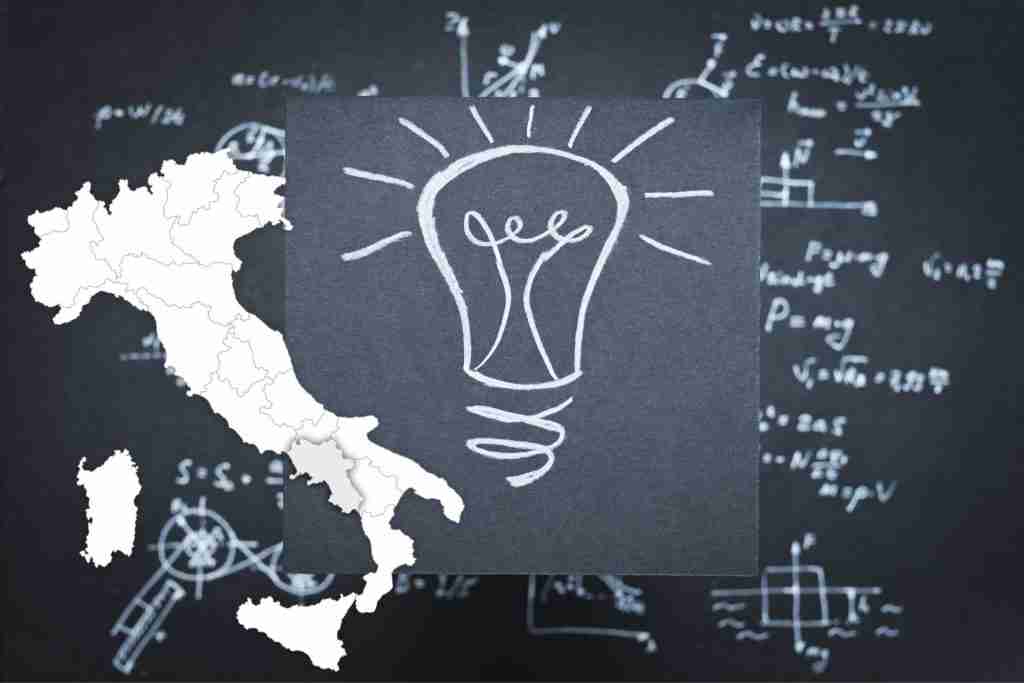12 amazing Italian inventions that changed the world. Throughout history, Italians have demonstrated remarkable ingenuity, precision, and analytical thinking in their innovations. The Italian peninsula has fostered creative minds who gave birth to inventions that would fundamentally reshape human civilization. From ancient Roman aqueducts to Galileo’s scientific advancements during the Renaissance to Marconi’s pioneering work on the radio, Italians have continually been at the forefront of technological progress. Their relentless curiosity, meticulous craftsmanship, and willingness to challenge conventional thinking led them to revolutionize fields as diverse as communications, engineering, optics, aviation, finance, and music. The fruits of Italian genius – devices like batteries, thermometers, eyeglasses, violins, and espresso machines – are used daily around the globe. Their groundbreaking inventions over centuries speak to the profound impact of Italian inventiveness and its invaluable contributions that helped propel the modern world. In this content we’ll discuss 12 Italian inventions that changed the world.
“Italy is the nursery of genius, where brilliant minds meet and dance to the melody of inspiration.”
Giuseppe Verdi

List of italian inventions
Famous Italian inventions: Radio
Guglielmo Marconi pioneered the development of long distance radio transmission in the late 19th century. His wireless telegraph system, patented in 1896, allowed messages to be communicated over distances without physical connections. Marconi sent the first ever transatlantic radio signal in 1901, revolutionizing long distance communication. Radio broadcasting for entertainment commenced in the 1920s. The ability to transmit sound over radio waves has had profound implications for mass media and telecommunications.
Italian Inventions: Battery
The first true battery was invented in 1800 by Italian physicist Alessandro Volta. His voltaic pile consisted of copper and zinc discs piled high, separated by cardboard soaked in brine. This galvanic cell produced a steady electric current and led to electrical storage batteries that could be used reliably. Portable electric power facilitated major technological leaps like electronic devices, telegraphs, telephones, and more. The unit of electrical potential, the volt, was named after Volta for this pioneering work.
Italian inventions: Piano
While the first pianos emerged in the early 1700s, the modern piano was developed in Italy. Bartolomeo Cristofori of Padua invented the pianoforte in 1709, which allowed the instrument to produce soft and loud tones using keyboard playing dynamics. The improved piano mechanisms gradually replaced harpsichords and clavichords across Europe. Mass production techniques in the 1800s made pianos more accessible. The piano became a fixture in everything from classical orchestras to jazz clubs and rock bands.

Italian Inventions: Clinical Thermometer
Invented by Santorio Santorio in the early 1600s, the thermoscope was the first device to incorporate a scale to quantify temperature. Galileo Galilei later improved Santorio’s design by using water instead of air, creating an accurate air thermometer. But it was scientist Daniel Gabriel Fahrenheit who devised the mercury thermometer in 1714, adding the temperature scale still used today. The ability to numerically measure heat led to advances in chemistry, meteorology, medicine and other fields. Thermometers enabled the Industrial Revolution.
Italian inventions: Barometer
Evangelista Torricelli, inventor of the first mercury barometer in 1643, enabled atmospheric pressure and weather forecasting through his creation. The barometer used a column of mercury in a glass tube, with pressure proportional to the height of the mercury. Lower pressure signaled rain. Measurements collected from barometer networks across Europe allowed the beginnings of meteorology. Barometers also helped calculate altitude. The tool drove new scientific inquiry into the open atmosphere and its patterns.
Italian Inventions: Double Entry Bookkeeping
The modern system of accounting and finance owes much to a Renaissance Franciscan friar named Luca Pacioli. He published the first description of double entry bookkeeping in his mathematics treatise Summa de arithmetica, geometria, proportioni et proportionalità in 1494. This method of tracking credits and debits in separate ledger columns revolutionized accounting. The Venetian method was soon adopted by merchants across Europe. It provided the foundation for managing business accounts as companies expanded during the Industrial Revolution.
Italian inventions: The Violin
Emerging in Italy in the 1500s, the violin evolved from older stringed instruments into the most iconic classical music instrument. Expert violin makers like Andrea Amati crafted early violins in Cremona. With its expressive tone and four strings, the violin produced more volume and power than its predecessors. As violin-making techniques improved over the centuries, the violin became a staple across orchestras and in solo classical performances. Both the basic shape and physics of the violin have endured unchanged through the present day.
Modern Italian Inventions: Eyeglasses
Invented in northern Italy in the late 13th century, eyeglasses were a huge innovation that drastically improved quality of life for the visually impaired. The first eyeglasses had convex lenses for magnifying and were connected by rims. They enabled new levels of mobility and independence for people with vision problems. Eyeglasses drove demand for lens grinding and spectacle making that accelerated optical technology. Versions of the original frames and lenses are still used in prescription glasses today.
Espresso Machines: Best Italian inventions
While rudimentary steam-driven coffee machines existed in the 19th century, Italians Luigi Bezzera and Desiderio Pavoni invented the first single-shot espresso machines in the early 1900s. The crema-producing equipment used steam and pressure to efficiently brew rich, concentrated shots of coffee. Milanese cafe owner Achille Gaggia transformed the design in 1938 to use a piston pump instead of steam to extract espresso. The modern chrome-plated machines soon spread from Italy across the world. Espresso became a global coffeehouse staple.
From ancient aqueducts to modern espresso machines, Italy’s innovative and analytical mindset has yielded inventions that shaped the course of human civilization. Italian genius gave the world fundamental tools like eyeglasses, thermometers, batteries, and pianos that are still used today. Their ingenious inventions driven by precision craftsmanship and scientific rigor continue to make a profound and lasting worldwide impact across technology, culture, and daily life.
Italian Inventions: Telephone
While Alexander Graham Bell is often credited with inventing the telephone, it was actually Italian inventor Antonio Meucci who developed the first working telephone in 1849. Unfortunately, Meucci lacked the funds to renew his caveat (a notice of an intention to develop an invention) and Alexander Graham Bell later filed a patent for the telephone instead. However, Meucci eventually won recognition for his pioneering work on the telephone after years of legal battles. The telephone drastically changed long distance communication and connectivity.
Pile Driver: Italian inventions
The pile driver, a machine used to drive piles into soil for building foundations, was invented by Venetian architect Domenico Fontana in 1585. Fontana created the machine to install over 300 large marble columns needed for relocating an ancient Egyptian obelisk to the center of St. Peter’s Square in Rome. His ingenious pile driver allowed construction on a massive scale previously not possible. The equipment was soon adopted across civil engineering projects like docks, bridges, and buildings. Modern pile drivers based on Fontana’s still see widespread use today in the construction industry.
Italian Inventions: Typewriter
The initial functional typewriter came into existence thanks to the ingenuity of the Italian innovator Pellegrino Turri in 1808. His motive was to aid his visually impaired friend, Countess Carolina Fantoni da Fivizzano, in composing letters. This groundbreaking device employed carbon paper to produce ink impressions on the paper. Later, in 1864, Giuseppe Ravizza introduced the Cembalo scrivano o macchina da scrivere a tasti (Scribe Harpsichord or Machine for Writing Keys), which marked the advent of the first commercially manufactured typewriter. This invention had a profound impact on business offices and professional writing, as it enabled swift and automated printing onto paper.

The Bottom Line
In this content we introduced 12 amazing Italian inventions that changed the world.
The innovative creations dreamed up by Italian inventors over the centuries speak to an unparalleled talent and drive to push technological boundaries. Their analytical spirit, meticulous attention to detail, and willingness to buck conventions led them to find novel solutions that fundamentally reshaped society. From ancient Roman aqueducts to Marconi’s revolutionary radio, Italian skill and persistence overcame daunting challenges to create devices that transformed daily life.
The fruits of Italian genius are still ubiquitous today – eyeglasses, thermometers, and batteries remain essential. Violin strings vibrate in orchestras worldwide thanks to perfected Italian craftsmanship. The modern piano originated from Cristofori’s tinkering to enable dynamics. Espresso machines brew cafe staples globally. From typewriters to the barometer, Italian inventions propelled humankind forward in remarkable ways. We owe an enormous debt for progress and modernity itself to the boundless innovation of Italian minds. Their restless search to push possibilities ever further stands as a shining testament to the foundations and future advancements of science and technology across the globe. Keep following our blog to discover more trivia and our LCN App.

